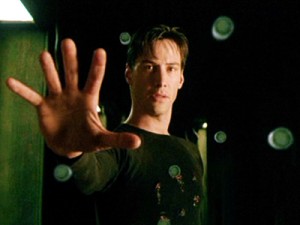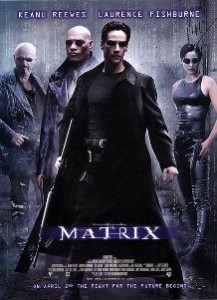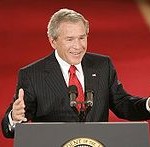This is the second part of my recollection of actor Rainn Wilson’s talk at the recent Association for Baha’i Studies conference in Irvine, California. Part One is here.
Rainn Wilson related, with wonder and amusement, how excited many people became in connecting the “man was embryonic in the world of the matrix” quote of ‘Abdu’l-Baha to the mind-blowing Matrix trilogy. He said that there were groups of people who embrace “Matrixism” as religion, and regard ‘Abdu’l-Baha as its early prophetic voice, and as its link to the entire history of revealed religion. This was news to me, but I found them in a most curious and bemusing on-line presence. One of their four basic tenets is the use of hallucinogenics as a sacrament; another is “adherence to the principles of one or more of the world’s religions until such time as the One [Neo doesn’t count] returns”. This tiny group does elaborate a few more funky laws, my favourite of which is that “all forms of professional athletic competition have now been abrogated”. (The revenge of the picked-on against the surly jocks!) That’s funny stuff, I guess, unless it’s pathetic. However, it points out again, if we needed more evidence, how hungry human beings are for a sense of meaning in life.
Wilson showed another clip from Matrix the first. Neo faces off with the baddies who are trying to prevent him from penetrating and exposing the mass hallucination that intelligent machines have created. Their programming illusion is intended to convince the humans that life is as it always was – meanwhile, their actual bodies are imprisoned in pods and used as robot fuel. This is where many of the oh cool! effects of the movie are featured. Neo bends
space and time. A hail of bullets slows at his silent command and clatters to the floor. He leans at impossible angles, and leaps with impossible speed. He artfully decomposes a bad dude by flying right into his holographic gut and exploding him from the inside. (Nice!) Neo has wondrous powers in the supercomputer-generated matrix because he understands that it is only a projection, an unreal construction. (Well, and because he is The Chosen One, which obviously helps.) By knowing the reality of life in that world, he becomes the master of it.





